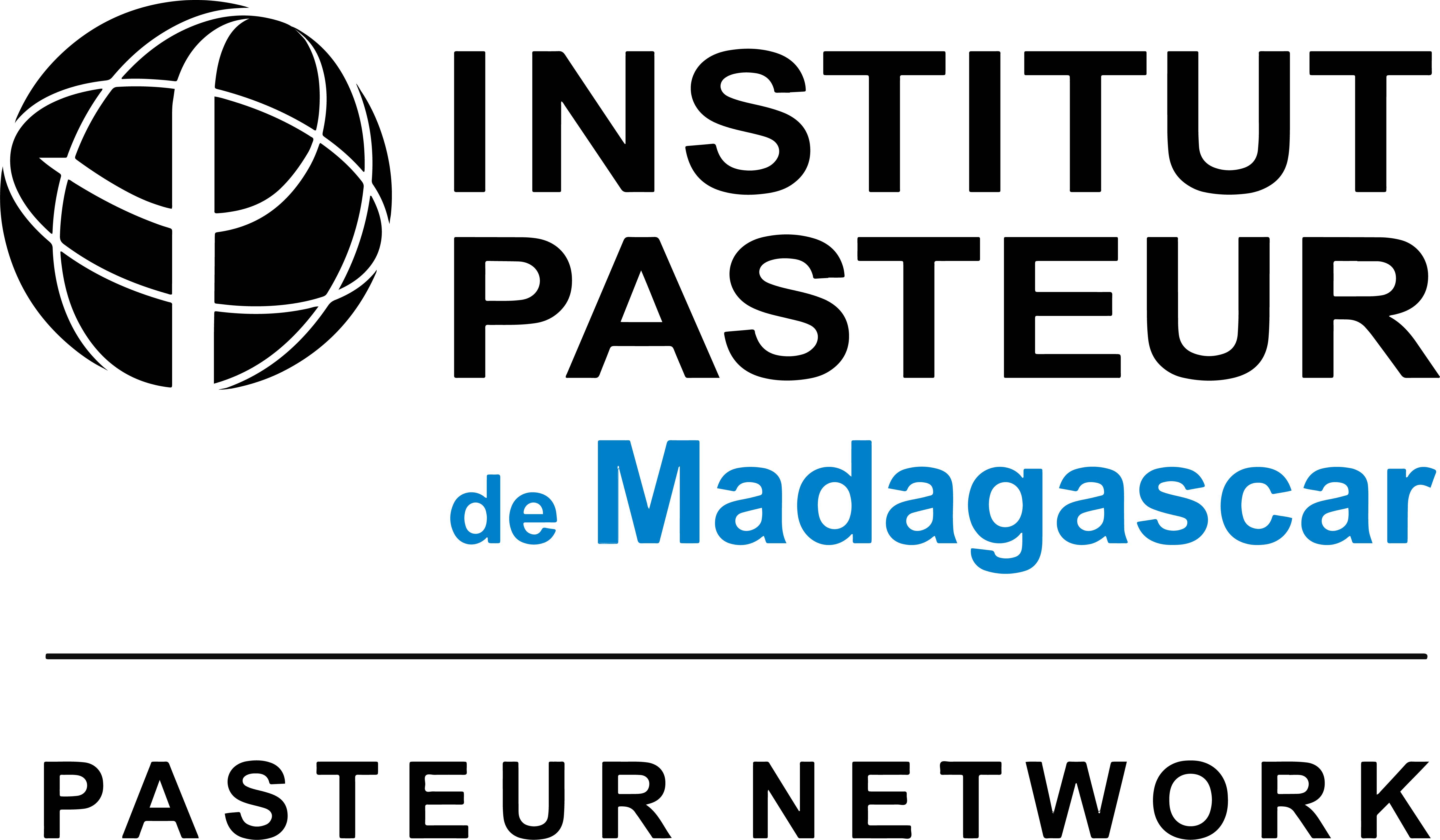L’Institut Pasteur de Madagascar organise une conférence scientifique qui se tiendra le jeudi 19 février 2026 à 15h00, dans la salle de conférence de l’Institut. Nous aurons le plaisir d’accueillir Camille Roesch, PhD, postdoctorante au sein de l’Unité Génétique et...
Conférence IPM : Vendredi 17 janvier 2020 à 10h00 – Salle de conférence
Dans la même catégorie
Recrutement : Agent de gestion des commandes (Traitement de la facturation) auprès du service approvisionnement (H/F)
INTITULE ET REFERENCE Poste : Agent de Gestion des Commandes – Traitement de la Facturation Nature du poste : Poste à temps plein basé à Antananarivo, Contrat à durée déterminée de cinq (5) mois A pourvoir : A partir du mois de mars 2026 Référence :...
11 février : Journée Internationale des femmes et des filles de science
Ce 11 février 2026, à l’occasion de la Journée internationale des femmes et des filles de science, placée sous le thème « De la vision à l’impact : Combler les écarts entre les genres en redéfinissant les STEM », cette journée rappelle l’importance de renforcer la...
Conférence à l’Institut Pasteur de Madagascar
L’Institut Pasteur de Madagascar organise une conférence intitulée « Yersinia pathogènes : des modèles fascinants pour étudier l’évolution de la virulence et les interactions hôte–pathogène » le jeudi 12 février 2026 à 15h, en salle de conférence. Cette session sera...
Lancement du projet LAM4RO : des outils innovants pour le dépistage et le suivi de la tuberculose.
Le 15 janvier 2026, le lancement officiel du projet LAM4RO « LipoArabinoMananne For Recherche Opérationnelle », à Madagascar, a eu lieu à l’Institut Pasteur de Madagascar (IPM). Ce projet de recherche opérationnelle, mené à Madagascar et au Cameroun, vise à améliorer...
les articles récents
Conférence à l’IPM : « S’associer pour échouer? Le paradoxe MQ-PPQ ».
L’Institut Pasteur de Madagascar organise une conférence scientifique qui se tiendra le jeudi 19 février 2026 à 15h00, dans la salle de conférence de l’Institut. Nous aurons le plaisir d’accueillir Camille Roesch, PhD, postdoctorante au sein de l’Unité Génétique et...
Recrutement : Agent de gestion des commandes (Traitement de la facturation) auprès du service approvisionnement (H/F)
INTITULE ET REFERENCE Poste : Agent de Gestion des Commandes – Traitement de la Facturation Nature du poste : Poste à temps plein basé à Antananarivo, Contrat à durée déterminée de cinq (5) mois A pourvoir : A partir du mois de mars 2026 Référence :...
11 février : Journée Internationale des femmes et des filles de science
Ce 11 février 2026, à l’occasion de la Journée internationale des femmes et des filles de science, placée sous le thème « De la vision à l’impact : Combler les écarts entre les genres en redéfinissant les STEM », cette journée rappelle l’importance de renforcer la...
Conférence à l’Institut Pasteur de Madagascar
L’Institut Pasteur de Madagascar organise une conférence intitulée « Yersinia pathogènes : des modèles fascinants pour étudier l’évolution de la virulence et les interactions hôte–pathogène » le jeudi 12 février 2026 à 15h, en salle de conférence. Cette session sera...
Lancement du projet LAM4RO : des outils innovants pour le dépistage et le suivi de la tuberculose.
Le 15 janvier 2026, le lancement officiel du projet LAM4RO « LipoArabinoMananne For Recherche Opérationnelle », à Madagascar, a eu lieu à l’Institut Pasteur de Madagascar (IPM). Ce projet de recherche opérationnelle, mené à Madagascar et au Cameroun, vise à améliorer...
Zoonotic Viruses in Cambodia: a Focus on Avian Influenza and Rabies – Philippe Dussart, Virology Unit, Institut Pasteur du Cambodge
Cambodia is a hotspot for endemic and emerging infectious diseases, many of which are zoonotic in origin. One such disease, avian influenza virus, specifically highly pathogenic subtype A/H5, has been endemic in Cambodia since 2004. As the Cambodian National Influenza Centre and WHO H5 Reference Laboratory, the Virology Unit at Institut Pasteur du Cambodge (IPC) supports the Cambodian Ministry of Health and Ministry of Agriculture, Forestry and Fisheries in the confirmation of influenza infections in humans and animals. IPC has maintained longitudinal surveillance at key live bird markets (LBMs), poultry storage points, and slaughterhouses in the heavily populated south-east of the country. Vigilant surveillance has revealed that Cambodian LBMs have high levels of avian influenza virus (AIV) circulation, with approximately 30-50% of ducks and 20-40% of chickens testing positive between 2013 and 2019. Moreover, a multitude of low pathogenic avian influenza (LPAI) viruses are concurrently circulating: A/H7 LPAI viruses, were detected in 2015, 2017 and 2018. In 2019, for the first time, subtype A/H5N6 clade 2.3.4.4 viruses were detected in poultry. Phylogenetic and molecular risk assessment is ongoing to determine the risk of these novel strains.
Another virus for zoonotic risk in Cambodia is rabies. A virus of global public health concern, most rabies cases are caused by dog bites, and deaths most commonly occur among the poorest or most remote populations, unable to receive post-exposure prophylaxis (PEP). In Cambodia, there are around 600,000 dog bites per year for 16 million inhabitants, leading to an estimated 800 patients dying of rabies yearly. The Rabies Prevention Center was established at IPC in 1995 and, in 2018 alone, this center provided rabies PEP to ~23,000 persons. Between 2002 to 2018, the Virology Unit at IPC has confirmed rabies infection in post-mortem brain tissue of 51.6% of biting dogs (n=1,928). In parallel to efforts of rabies prophylaxis in humans, IPC participates in a regional, One Health network bringing together stakeholders and researchers from Lao PDR, Cambodia and Vietnam aiming to reduce rabies risk by improving diagnostic capacities, providing basic knowledge on dog population dynamics which is vital for efficient vaccination strategies, and establishing a strong, inter-sectoral network for rabies control in this region.


